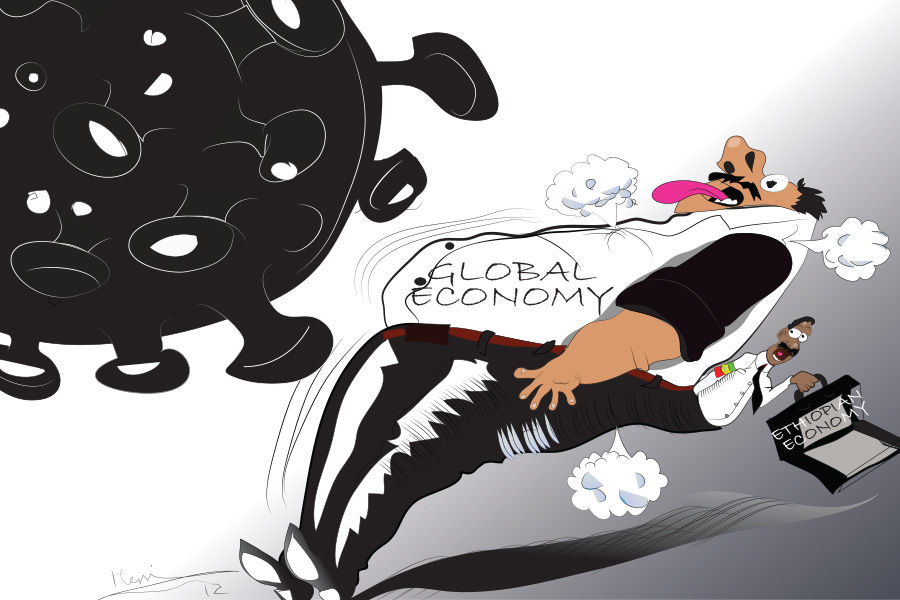
Sunday with Eden | Apr 17,2021
Aug 24 , 2019
By Md. Shahidul Haque
In a globalised world, migration is a fact of life that should be governed accordingly. To that end, it is time to establish what I call “Migration Order 3.0,” a new framework that would make migration work for everyone.
Until World War II, transnational human mobility was subject to Migration Order 1.0: immigration controls were established solely at the national level by governments. After the war, international institutions such as the United Nations High Commissioner for Refugees and the forerunner to the International Organization for Migration (IOM) were created to manage refugee and migrant flows, primarily from and within Europe. During this era of Migration Order 2.0, the movement of people across national borders was governed by mutually agreed norms, standards and practices.
Large-scale, cross-border movements of people, however, have exposed fault lines in that post-war framework. We now know that Migration Order 2.0 is inadequate to the task at hand. According to the UN Department of Economic and Social Affairs, most migrants tend to move within their own continents, and not necessarily toward the destinations that one would assume.
Moreover, interconnected global forces are ushering in a new phase of migration, defined by different dynamics than in the past. A global shift in the balance of power has created new geopolitical tensions, and governance failures have led to armed conflicts and civil wars, violent extremist movements, and the rise of ultra-nationalism and populism in many countries. The world is experiencing a violent backlash against globalisation, rising inequality, and sudden labor-market disruptions.
Social inequities, humanitarian crises, demographic changes, and identity politics all pose a challenge to a development paradigm that was supposed to leave no one behind. At the same time, climate change and biodiversity loss are threatening to displace entire populations from vulnerable locations around the world.
In the past, the movement of people tended to follow four broad patterns: migration for work, education, and family; irregular migration, mostly due to human trafficking; cross-border displacements triggered by conflicts and natural disasters; and refugees fleeing persecution. But these four categories have increasingly begun to overlap, which places strain on a system that was designed to manage each type separately.
Today’s mixed migratory patterns demand a more cohesive yet differentiated approach. The costs of maintaining the status quo in response to disorderly migration cannot be ignored. Growing anxieties among host populations are causing an unwarranted backlash, with far-reaching negative implications for economic and political systems. There is also a moral dimension to consider: migrants in all categories are increasingly vulnerable to abuse, owing to lack of access to resources and power.
Fortunately, there are realistic options for improving migration governance. With objective information about migration and its consequences, we can dispel popular misperceptions and reduce social tensions. We can also design and implement policies that will secure the many benefits of migration. Investment in empowering migrants is a win-win proposition for everyone. The vicious cycle of migration, economic hardship, and social backlash can be turned into a virtuous cycle of integration and economic growth.
Of course, all of this is easier said than done. National sovereignty and universal human rights can be difficult to reconcile. Governments struggle to strike a balance between realizing the economic gains of migration, protecting native-born citizens’ interests, and ensuring national security. And it doesn’t help that the capacity and resources for governing migration effectively are often in short supply.
Nonetheless, the international community is making progress toward overcoming these challenges. The UN Sustainable Development Agenda includes a specific target (Target 10.7) for optimising migration governance. And the new Global Compact on Safe, Orderly, and Regular Migration (GCM) provides a non-binding framework to guide countries and other stakeholders toward a more comprehensive approach.
The GCM’s implementation is being overseen by the IOM. Astute observers will note that the GCM’s provisions are perfectly aligned with the principles and objectives that governments have already embraced under the Sustainable Development Agenda and the IOM’s Migration Governance Framework. It does not offer a silver bullet, but it will serve as the blueprint for building a workable Migration Order 3.0.
The final text of the GCM was agreed only last year. As always, mustering a constructive multilateral effort will take political will. But the GCM promises to make migration work for everyone. The only question is how long it will take governments and other stakeholders to recognise it as a powerful tool for addressing the geopolitical dimensions of migration and unite around realising its potential.
PUBLISHED ON
Aug 24,2019 [ VOL
20 , NO
1008]


Sunday with Eden | Apr 17,2021

Editorial | Mar 14,2020

Fortune News | Feb 16,2019

Viewpoints | Nov 09,2024

Commentaries | Jul 26,2025

View From Arada | Nov 05,2022

Viewpoints | Aug 20,2022

Commentaries | May 23,2021

Sunday with Eden | Dec 25,2018

Featured | Jan 18,2020

Photo Gallery | 177748 Views | May 06,2019

Photo Gallery | 167960 Views | Apr 26,2019

Photo Gallery | 158654 Views | Oct 06,2021

My Opinion | 137004 Views | Aug 14,2021
Commentaries | Oct 25,2025

Dec 22 , 2024 . By TIZITA SHEWAFERAW
Charged with transforming colossal state-owned enterprises into modern and competitiv...

Aug 18 , 2024 . By AKSAH ITALO
Although predictable Yonas Zerihun's job in the ride-hailing service is not immune to...

Jul 28 , 2024 . By TIZITA SHEWAFERAW
Unhabitual, perhaps too many, Samuel Gebreyohannes, 38, used to occasionally enjoy a couple of beers at breakfast. However, he recently swit...

Jul 13 , 2024 . By AKSAH ITALO
Investors who rely on tractors, trucks, and field vehicles for commuting, transporting commodities, and f...

Oct 25 , 2025
The regulatory machinery is on overdrive. In only two years, no fewer than 35 new pro...

Oct 18 , 2025
The political establishment, notably the ruling party and its top brass, has become p...

Oct 11 , 2025
Ladislas Farago, a roving Associated Press (AP) correspondent, arrived in Ethiopia in...

Oct 4 , 2025
Eyob Tekalegn (PhD) had been in the Governor's chair for only weeks when, on Septembe...

Oct 25 , 2025 . By YITBAREK GETACHEW
Officials of the Addis Abeba's Education Bureau have embarked on an ambitious experim...

Oct 26 , 2025 . By YITBAREK GETACHEW
The federal government is making a landmark shift in its investment incentive regime...

Oct 27 , 2025
The National Bank of Ethiopia (NBE) is preparing to issue a directive that will funda...

Oct 26 , 2025 . By SURAFEL MULUGETA
A community of booksellers shadowing the Ethiopian National Theatre has been jolted b...